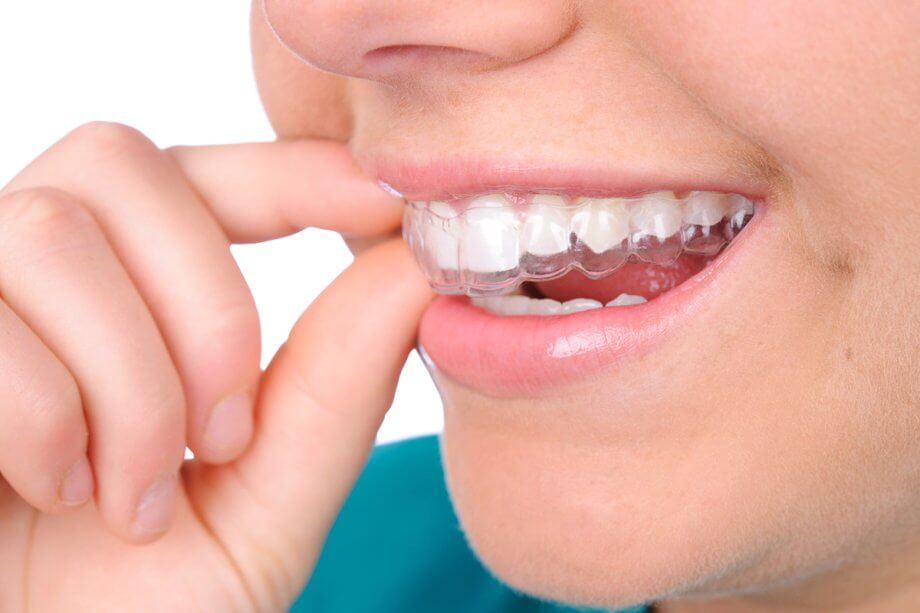According to studies published by the National Institute of Health more than 10% of people in the U.S. suffer from bruxism (teeth grinding and clenching). If left untreated, teeth grinding and clenching can cause a host of oral health problems. However, grinding your teeth doesn’t make you ineligible for Invisalign treatment. On the contrary, Invisalign may be prescribed specifically to help you stop grinding your teeth. Read on to learn about Invisalign and how it can help you stop grinding your teeth.
Invisalign and Teeth Grinding: What to Know
There are many reasons that people grind their teeth, including misaligned teeth, or a misaligned bite (malocclusion). If your dentist suspects that you’re grinding your teeth due to one of these orthodontic conditions, then treating the underlying condition is often prescribed.
For example, people with an overbite (approximately ⅓ of the population) who grind their teeth often stop after the bite is corrected. Conversely, those with an existing overbite who continue to grind their teeth may experience a worsening of the overbite.
Those with misaligned teeth may also struggle with teeth grinding, as misaligned teeth don’t line up with their matching pair on the opposite arch. So, when you’re eating for example, if the teeth are misaligned, they will not mesh as intended. This can lead to grinding when you chew or bite. After properly aligning the teeth with Invisalign, the teeth will mesh properly, preventing grinding.
Will Grinding Hurt My Invisalign Trays?
Teeth grinding may cause a bit of wear on Invisalign trays, but the trays are made of durable plastic, so they can withstand temporary grinding. Because each set of Invisalign trays is typically only worn for a couple of weeks, the damage they may sustain from grinding isn’t enough to render them ineffective.
Tips for Reducing Teeth Grinding Naturally
Grinding your teeth can cause numerous oral health problems, including gum disease, cavities, enamel erosion, loose teeth, and cracked teeth. Although many people will require treatment from a dentist, such as Invisalign or a night guard, others may not.
There is a correlation between stressful periods in life, and teeth grinding. Even those with no known history of bruxism may wake up to a sore jaw, teeth, or gums during particularly intense life events. New marriages, babies, moves, jobs, or the loss of a loved one are some of the most common stressors that can put you at increased risk of grinding.
To that end, dentists often recommend at-home relaxation techniques and activities. Yoga, mindful meditation, breathing exercises, or walks in nature may help with stress and anxiety. Likewise, patients who suddenly begin grinding their teeth in response to stress may benefit from soothing activities including painting, stretching, or using a calming app before bed.
Frequently Asked Questions about Teeth Grinding
How long will I need Invisalign?
The duration of your treatment will depend on the type and severity of alignment or bite issues that need to be corrected. Most people complete treatment in about a year. Those with minimal misalignments may complete treatment in as few as six months, while those with more significant issues may need treatment for up to 2 years.
Can teeth grinding go away on its own?
Absolutely. Teeth grinding may be a manifestation of stress. When stress subsides many people will also stop grinding their teeth. Others will need treatment to stop grinding their teeth.
Schedule an Appointment for Teeth Grinding at Kensington Natural Smiles
At Kensington Natural Smiles, Dr. Susan Ho and Dr. Suprina Kaur provide Invisalign treatment to correct misaligned teeth and bite conditions. To schedule an appointment, call 301-933-3903 or message us.

